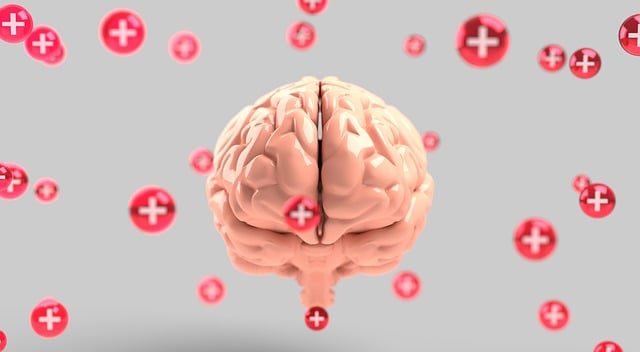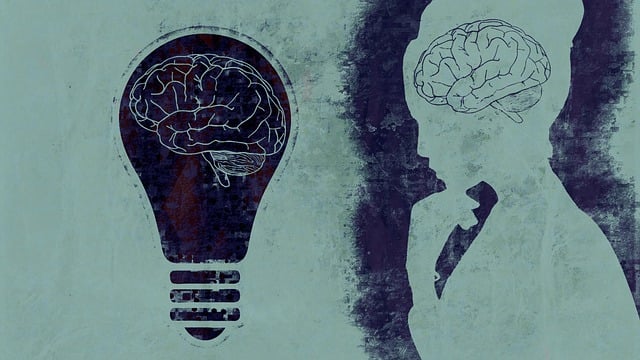Chronic stress, linked to various health issues, demands effective management strategies. Centennial Acceptance and Commitment Therapy (ACT) offers a unique approach by fostering mindfulness, acceptance, and commitment to valued actions. This therapy reduces mental health stigma and enhances self-awareness, resilience, and well-being. Combined with social skills training, support networks, and stress management workshops, ACT provides practical tools for navigating life's challenges, ultimately promoting better mental health outcomes.
Stress reduction is essential for overall well-being, but navigating chronic stress can feel overwhelming. This article explores effective methods to combat daily pressures. We delve into the profound impact of long-term stress and introduce Centennial Acceptance and Commitment Therapy (ACT) as a revolutionary approach, focusing on mindfulness and value-driven actions. Additionally, practical strategies are offered for immediate application, providing tools to manage and reduce stress levels naturally. By implementing these techniques, you can foster resilience and enhance your quality of life.
- Understanding Chronic Stress and Its Impact
- Exploring Centennial Acceptance and Commitment Therapy (ACT) as a Revolutionary Approach
- Practical Strategies for Daily Stress Reduction
Understanding Chronic Stress and Its Impact

Chronic stress refers to a prolonged state of psychological and physiological arousal, often caused by ongoing challenges or demands that strain an individual’s ability to cope. Unlike acute stress, which is a normal response to immediate threats, chronic stress can lead to severe consequences for both mental and physical health over time. It has been linked to increased risk of various conditions, including heart disease, depression, anxiety disorders, and weakened immune function. Recognizing the impact of chronic stress is paramount in implementing effective strategies for its reduction.
Centennial Acceptance and Commitment Therapy (ACT) offers a promising approach to managing chronic stress. By fostering mindfulness and acceptance, ACT helps individuals detach from stressful thoughts and emotions, reducing their impact. This therapy also encourages commitment to valued actions, promoting a sense of purpose and meaning that can buffer against the effects of stress. Additionally, Trauma Support Services and Community Outreach Program Implementation can play a crucial role in providing additional resources and support for those dealing with chronic stress, such as through Stress Management Workshops Organization, which equips individuals with practical tools for navigating and reducing their stress levels.
Exploring Centennial Acceptance and Commitment Therapy (ACT) as a Revolutionary Approach

Centennial Acceptance and Commitment Therapy (ACT) is a revolutionary approach to stress reduction that offers a fresh perspective on managing mental illness. Unlike traditional talk therapies, ACT encourages individuals to accept their emotions and thoughts without judgment, fostering a deeper connection with the present moment. This therapy promotes self-awareness exercises that help people become more mindful of their experiences, leading to better decision-making and goal-directed behavior.
ACT also plays a pivotal role in Mental Illness Stigma Reduction Efforts by shifting the focus from suppressing or avoiding thoughts and feelings to learning to live with them. Through this process, individuals develop resilience and a stronger sense of self, enabling them to engage in activities that bring them joy and meaning. Stress Management Workshops Organization can greatly benefit from incorporating ACT techniques into their programs, offering participants practical tools to navigate life’s challenges with greater ease and flexibility.
Practical Strategies for Daily Stress Reduction

Stress reduction is an integral part of maintaining good mental health and overall well-being. Incorporating practical strategies into your daily routine can significantly lower stress levels and promote a sense of calm. One evidence-based approach, Centennial Acceptance and Commitment Therapy (ACT), encourages individuals to accept their emotions without judgment while committing to actions aligned with personal values. This therapy fosters flexibility in thinking, helping one to detach from negative thought patterns and reduce the associated stress.
Additionally, Social Skills Training and Resilience Building can be powerful tools for managing stress. Learning effective communication techniques and building a support network of friends and family can provide a sense of belonging and emotional validation. Practicing mindfulness and focusing on the present moment through activities like meditation or simply paying attention to sensory experiences can also reduce stress and enhance overall mental clarity. Combining these strategies allows individuals to navigate daily challenges with greater ease and resilience.
In navigating the intricate landscape of stress reduction, it’s clear that both understanding our triggers and adopting innovative therapeutic approaches are pivotal. The article has explored these facets through examining chronic stress, its profound impacts, and introducing a game-changer in psychological treatments: Centennial Acceptance and Commitment Therapy (ACT). By combining mindfulness and acceptance with goal-directed behavior, ACT empowers individuals to create meaningful lives amidst challenges. Furthermore, practical strategies for daily stress reduction have been offered as tools to foster resilience. Embracing these methods can lead to a symphony of improved well-being, enabling folks to dance through life’s ups and downs with enhanced adaptability and tranquility.














